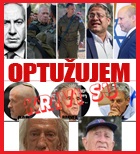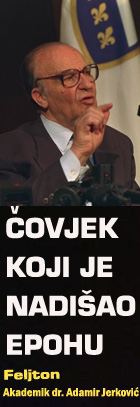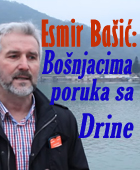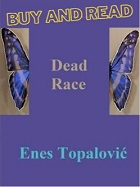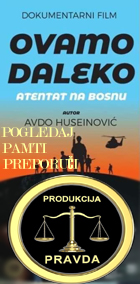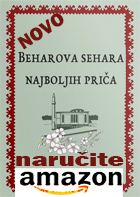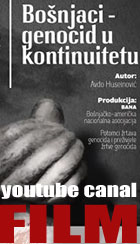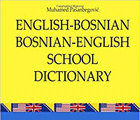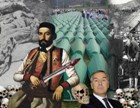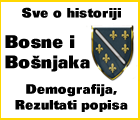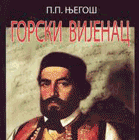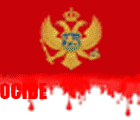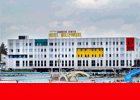Teme
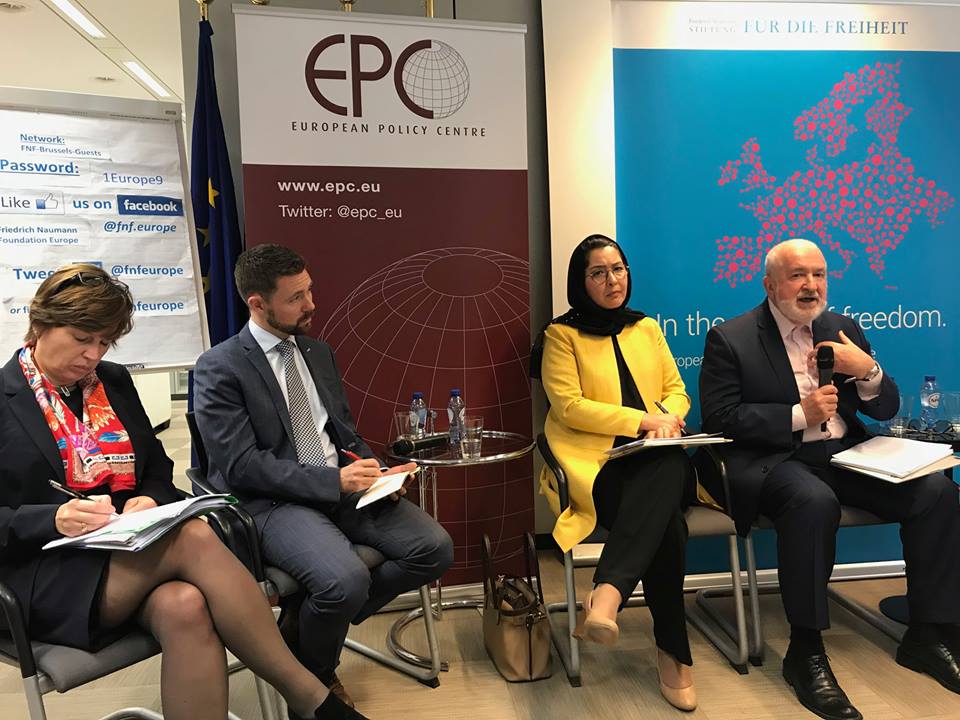
U BRISELU ODRŽANA RASPRAVA O IZVJEŠTAJU: "ČOVJEČANSTVO U RIZIKU"
 |
| DR. MUSTAFA CERIĆ: Nakon vrućeg kairskog i mekkanskog zraka osjetio sam i hladni briselski zrak. No, Brisel nije samo hladniji od Kaira i Mekke, već je i bezmirisniji. Miris ima svoje čari, ali ako ga ima previše, onda može da vam naškodi. Čini mi se da je ovih dana ili ovih godina miris Kaira i Mekke previše mirišljiv i previše obojen raznim bojama, dok je Brisel i bez mirisa i bez boje. Zato se u Briselu može govoriti o svim mirisima i o svim bojama, koji se ovih dana nameću s istoka. No, nisu svi ni orjentalni mirisi ni orjentalne boje skroz jasne, ali su prepoznatljive, naročito one koji mirišu na nasilje. A o tome je jučer bilo najviše riječi - o nasilju, koje se povezuje sa džihadi idelogijom na istoku, nasilju koje se prelijeva i na Europu. I Bosna je u Europi, bar kad se tiče ovog pitanja - nasilja ili terorizma, od kojeg Europa ima strah - opravdano, ali ne i obraz da za to optužuje Bosnu i da se boji dva milujuna muslimana u Bosnu i nakon Genocida u odnosu na petsto milijuna Europljana, koji su većina kršćani... Ali, da li je to važno kad je riječ o miru i sigirnosti za sve nas. Nažalost, nasilje je danas prisutno svugdje u svijetu i zato se protiv nasilja i nasilinika trebamo svi boriti. I to ne samo protiv nasilja zbog nasilja, već i protiv političkog i porodičnog nasija i nasilnika. U stvari, u porodici i iz porodice nasilje i počinje. Zbog toga je nužno da se porodično nasilje iskorijeni i da se nasilnicima stane u kraj, posebno onima koji imaju vlast. Nažalost, toga ima i u našoj Bosni i u našem gradu, što bi trebalo da nas zabrinjava. Izveštaj o nasilju ili terorizmu, koji je jučer prezentiran u Briselu kao "Čovječanstvo u riziku" je upozorenje da ako se nišata ne poduzme na vrijeme i adekvatno, teške će biti posljedice za cijelo čovječanstvo... Zato je važno biti informiran o nasilju u svijetu - političkom i porodičnom - i zato je važno boriti se protiv toga rječju i djelom ovdje kod nas i u svijetu. Bila je to glavna poruka jučer u Briselu! |
U srijedu, 24.10.2018., u organizaciji Fondacije Friedrich Nauman i Europskiog centra za politiku u Briselu, Reisu-l-ulema (1993. – 2012.) dr. Mustafa Cerić, predsjednik Svjetskog bošnjačkog kongresa, sudjelovao je kao govornik na specijalnoj sesiji o izvještaju grupe za strateška predviđanja (Strategic Forsight Group) iz Bombaja, Indija i Oksfordskog centra za rješavanje neukrotivog konflikta (Oxford's Center for the Resolution of Intractable Conflict), gdje su predsjednik SFG Sundeep Waslekar iz indije i direktor CRIC Lord John Alderdice iz Britanije predstavili Izvještaj, na kojeg su panelisti dali svoj komentar:
Presenting ‘Humanity at Risk’:
- Sundeep Waslekar, President of Strategic Foresight Group;
- John Alderdice, Director of the Center for the Resolution of Intractable Conflict.
Speakers:
- Suraya Dalil, Permanent Representative of Afghanistan to the United Nations;
- Mustafa Cerić, President of the World Bosniac Congress
- Catherine De Bolle, Executive Director of Europol
Ben Pugsley, Adviser to the EU Counter-Terrorism Coordinator.
Moderator:
Amanda Paul, Senior Policy Analyst, European Policy Center.
Below we publish the discussion
U nastavku objavljujemo diskusiju dr. Mustafe Cerića, na engleskom jeziku:
FNST-EPC
Strategic Foresight Group Policy Dialogue
Brussels, October 24th, 2018
By Mustafa Ceric
Grand Mufti Emeritus of Bosnia
Kep Advisory Commission Chairman
A brief initial comments focused on the report “Huminiy at Risk”
The Report has three sections: Who? Why and How? And Indicant!
(1) The answer to the question “Who enables terror” is the hardest one because no one would ever acknowledge to sponsor the terror. This is the puzzle of all the puzzles. However, the Strategic Foresight Group has identified and analyzed almost 200 groups actively involved in committing acts of terror in the first half decade of the twenty first century…
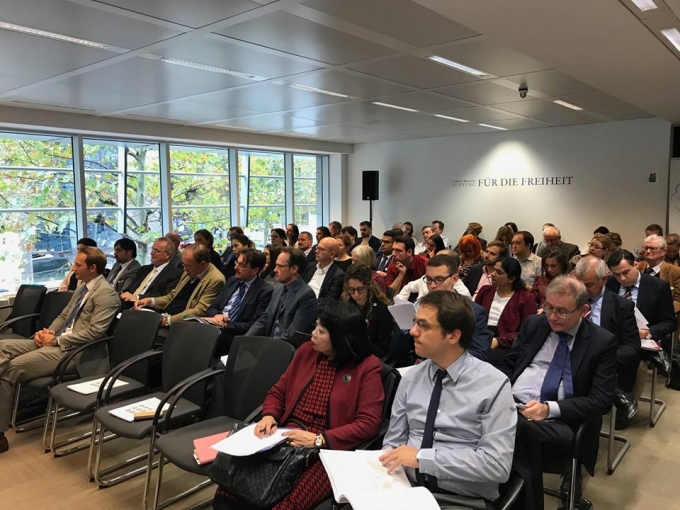 |
Indeed, the Report reads the groups such as: the Irish Republican Army in UK was the first significant group to seek a political solution at the turn of the century, just as Al-Qaida was preparing to unleash a new era of terrorism with its dramatic attacks on strategic targets in the United States. Since then, FARC in Colombia and Maoists in Nepal have found political solutions. LTTE in Sri Lanka has been eliminated. New People’s Army in the Philippines, National Alliance and Aryan Nations in the United States, and Lord’s Resistance Army in Eastern Africa have been weakened. There are still terror groups active at the local level, such as the Naxalites in the central districts of India, ELN in Colombia, groups in the Niger delta in Africa and a few others. But there is no doubt that the terrorism map of the world has changed in the decade from 2007 to 2017… And I would add to this list the Serbian Black Hand known for its oath of Unification or Death, which was responsible for the association of the Archduke Franz Ferdinand in 1914 in Sarajevo that had kindled the First World War, the heir to this secret military organization is now the Serbian Chetnik Community known as Ravnogorski pokret (“The Ravnogorski Movement”), which is still operating despite the factr that the Serbian military and political leadership has ben persecuted for an alleged Genocide in Bosnia.
However, among all these groups, Islamic State of Iraq and the Levant (ISIL)/Daesh has attracted much of media space in the last five years. And, as Report rightly states: “The excessive focus on immediate issues is natural but it only results in dealing with symptoms rather than the malady. There is a need to shift the mindset from “countering” terrorism to “deconstructing” terrorism. This would require understanding the psychology of terrorism in depth as well as understanding the politics of support to terrorism”.
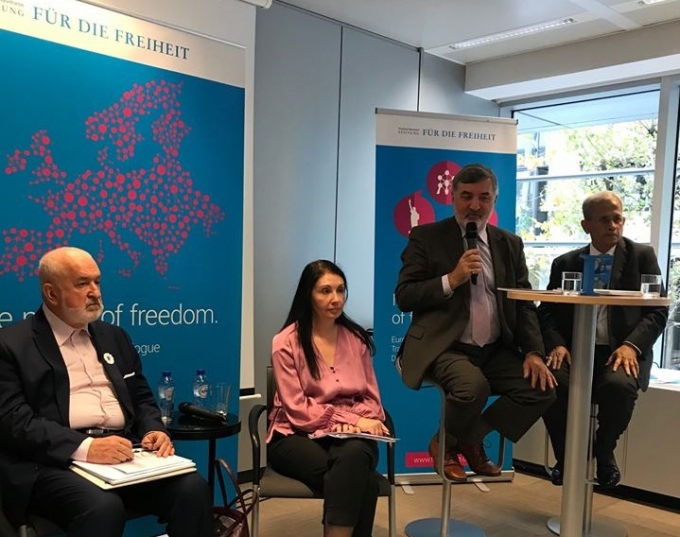 |
(2) The answer to the question “Why and How” is also hard because if you try to explain why, you risk to justify the act of terror for a goal which is often cover up in a noble cause. It is not far from truth to call their goals “sacred values”, as Scott Atran has designated them or “core beliefs”, as Prof. Sundeep Waslekar has suggested in the Report, but the puzzle is still unscrambled. I think that there is no one explanation of “Why” because there is no one motivation but, as has been said in the Report: “In some cases, it is possible to distinguish between tangible objectives and core beliefs, but in others there are thin dividing lines between the two ideas. Lord Alderdice has explained in several of his lectures and speeches that once these lines disappear, the lines between past, present and future also disappear along with lines between geographical entities. Thus, persons consumed by core beliefs tend to be prepared to ignore the differentiating line between life and death (or after life) as they ignore the spatial and time differences. Therefore, history and events in faraway geographical regions can form part of “here and now” to take revenge of the perceived wrong. While in theory dialogue and addressing the ‘dignity deficit’ can address the psychological obsession with core beliefs, in practice it is impossible to do so because of sustained support to such beliefs by organized vested interests including states, intelligence agencies and criminal networks”.
The Report has brought us a good understanding of the question “How” the terror operation works:
a) Strike outside the boundaries of cause/control
b) Less complex and unsophisticated attacks
c) Decentralised planning of attack�Lone wolf attacks
d) Use of vehicles as weapons�
e) Low cost but high impact attacks�
f) Soft and random targets�
g) Locally radicalized actors�
h) Use of smaller weapons�Increased use of suicide bombing
i) Women and children suicide bombers
j) Hit and run tactic
3) The third section the “Indicant” is the most important part of
the Report because it tells us where the future threats might come from and who might be the possible players, but the puzzle still remains as to how to uproot the terror and terrorism once for all…
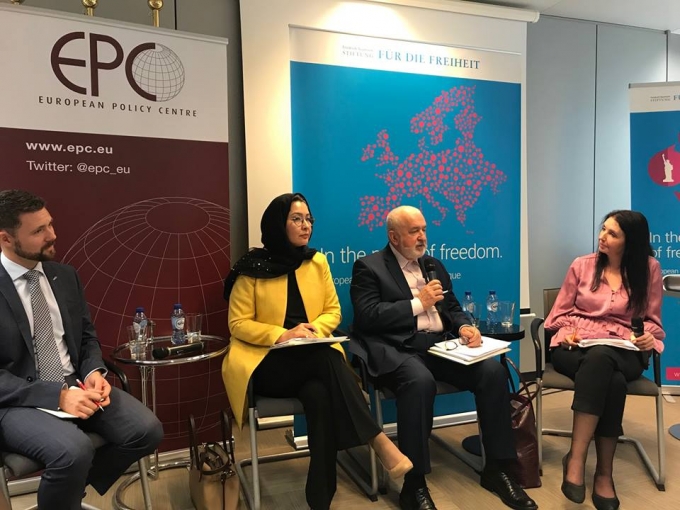 |
1. Since 2002 groups using jihadi ideology as a cover to promote terrorism have diversified and expanded. What are the reasons for this and what should be done by the international community to reduce the risk from this form of terrorism?
You are right this form of terrorism is new. The Muslims are victims more than anyone else because of it... It is hard to say how we have gotten to this stage of confusion and inability to confront this form of terrorism... But, what I can say is that the idea of jihad, as a form of resilience or perseverance on a personal level is not new in the overall Muslim thought in the same way as the idea of crusade in the Christian thought is not unusual like saying a "crusade" to improve educational opportunities for all, for instance. What is new, however, is the jihadi ideology or crusade ideology, which claims to be based on the idea of God's commandment, which is not one of Ten Commandments of Abrahamic faith, as we know... Hence, the jihadi ideology that has been developed recently is a result of a political makeup mixed with a religious ferment. But, you don't need a religion to make up an ideology... Pol Pot's ideology was not religious but didn't prevent him from committing war crimes against humanity... I am not sure that International Community can do much in reducing the jihadi ideology... I believe that this problem the Muslims themselves must solve it for all, but most of all for the sake of their own safety and the safety of their deserved place in the international community... The Muslims are aware of that and they are capable to do it with their good friends in the world.
2. What is the role of the concepts of justice and injustice in attracting youth towards terrorist groups? What lessons can be drawn from the experience of the seize of Sarajevo and the response of the Muslim youth in Bosnia?
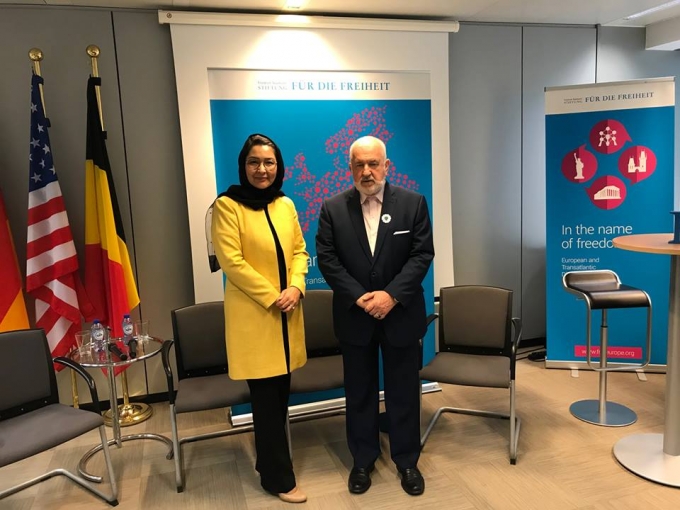 |
This is good question. Indeed, Bosnia was the biggest test of a moral and political credibility of the international community represented in the United Nations, which was established after the Holocaust to make sure that it never happens again to no one and nowhere. Unfortunately, the international community failed that moral and political test. Some have concluded that the reason for that failure was Bosnian Muslim identity despite the fact that the Bosnians had been almost lost their Muslim identity due to a long period of communist antireligious campaign. This perception that the Muslims in Bosnia had been persecuted by the Orthodox Christian Serbs because of their Islamic identity and the fact that the city of Sarajevo had been under siege for four years, longer that the siege of Stalingrad, before the eyes of the whole world that stood by, led many people to believe that this was a plot against Islam and Muslims. Thus, as a result of an inaction of the international community together with an imposed embargo on the Bosnians to defend themselves we had the Genocide in Bosnia like the Holocaust... Indeed, we had the fragrant break of the promise "Never Again". Unfortunately, it is not only that the Genocide was committed, but also that the results of Genocide in Bosnia have been paid off despite the indictments for Genocide in then Haag.
Let me be clear. Bosnia has never been the source of violence of any kind not only because of its genuine Bosnian peaceful tradition, but also because of its compatible Islamic worldview of the time. If some violent incidents happen from time to time though, it is because these attitudes were imported into Bosnia but could nit survive. Bosnia has shown that by the fact that no one single incident of violence that could be linked to a Genocide revenge has occurred in the post wartime.
I am proud of the Bosnian youth for their resilience against violence and terrorism. If there are some individuals who are misguided, however, they do not represent a Bosnia's strong commitment to nonviolence that has been demonstrated in the most difficult time of both and peace. This is neither an apology nor denial, but the Bosnian "core belief", to use Prof. Sandeep's phrase, in peace and tolerance.



